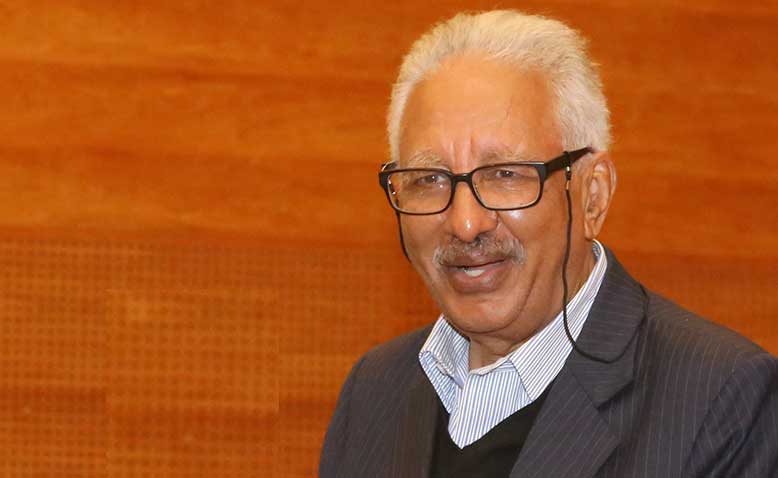
Fortune News | Jul 15,2023
Sep 8 , 2024
By Hintsa Andebrhan
Ethiopia’s economic and diplomatic missteps have created a volatile environment domestically and abroad. Prime Minister Abiy Ahmed’s (PhD) administration is increasingly perceived as reactive and unprepared to handle the complexities of governance, leaving the country vulnerable to internal unrest and external pressures. At home, empty plates and rising discontent speak to the failure of the government’s economic policies. Abroad, Ethiopia’s diplomatic clout in the region appears to be slipping away.
The economy appears to be in a freefall as Birr has lost substantial value since July. The country’s economic sovereignty now seems to be tethered to the dictates of the International Monetary Fund (IMF) and the World Bank.
The economic strain on ordinary Ethiopians is compounded by the federal government’s adherence to IMF-driven reforms that have deepened austerity measures and undermined domestic markets. Many blame the administration for pushing the economy into the arms of these financial institutions at the expense of the country's most vulnerable citizens. The reforms, designed to stabilise the economy, have instead created a widening gap between the rich and poor, with inflation pushing even necessities out of reach for millions.
Inflation remains in double digits, and small businesses, which form the bedrock of the nation’s microeconomy, are disappearing from the market. Many Ethiopians, particularly the self-employed and those depending on these businesses, struggle to make ends meet. The economic pain is apparent, and the administration's policies are under intense scrutiny.
A recent report from the Food & Agriculture Organisation (FAO) and the World Food Programme (WFP) unveils the gravity of the crisis, classifying Ethiopia as a "hunger hotspot." The scale of the problem is vast, with an estimated 13 million people, including four million internally displaced, urgently needing humanitarian food assistance in the three months to September 2024. Most of the displaced citizens are in the regional states of Amhara, Tigray, Oromia, and Somalia, where the brunt of conflicts and economic mismanagement has mainly been felt.
As the economic burden deepens, Ethiopians are left to cope with a rising cost of living, while their government touts policies that seem disconnected from their realities on the ground. In an ill-timed comment, Prime Minister Abiy recently advised the public to substitute traditional meals, such as chicken stew, with fried chicken and bread, a suggestion that has only fueled broad displeasure. His advice seems out of touch with the struggles of a populace facing escalating food insecurity, a direct consequence of his administration's economic policy reforms.
The administration has pushed to position Ethiopia as a wheat-exporting country, an effort that critics say has further exacerbated domestic food insecurity. Despite the fanfare over these export ambitions, the policy has raised questions about the government’s priorities.
How can a country struggling to meet its population's food needs justify exporting its staple crops?
The issue goes beyond just food insecurity. It strikes at the heart of Ethiopia’s sovereignty and ability to control its agricultural markets. As food sovereignty erodes, the authorities' effort to persuade citizens about nutrition is also questioned.
Ethiopia's foreign policy missteps on the international stage are adding to the country's woes. The Abiy administration's pursuit of a naval base on the Gulf of Aden has triggered tensions with neighbouring Somalia. Ethiopia’s push to secure a maritime presence in the region appears to have backfired, allowing Cairo to strengthen its diplomatic ties with Mogadishu. The signing of a military cooperation protocol between Egypt and Somalia in August this year clearly signals Cairo’s intent to expand its influence in the Horn of Africa.
For Ethiopia, this should represent a diplomatic failure.
Egypt, long at odds with Ethiopia over the Grand Ethiopian Renaissance Dam (GERD) project, now finds an ally in Mogadishu. This development could complicate Addis Ababa’s strategic interests in the region. Egypt’s growing military and diplomatic presence in Somalia directly challenges Ethiopia’s regional sphere of influence. The opening of a new Egyptian embassy in Mogadishu can reinforce this point.
It would be naive to take these moves as random. Instead, they should be considered carefully when preparing a response. Ethiopia's diplomatic miscalculations have been costly so far.
The administration’s attempts to resolve diplomatic tensions with Somalia through negotiations in Ankara, Turkey, have done little to stem the tide. Turkish President Recep Tayyip Erdogan's involvement, who acted as a mediator between the two countries, brought additional pressure on Ethiopia. Erdogan stressed the importance of respecting Somalia’s sovereignty, a message that aligned with Somalia’s posturing in the ongoing talks. Mogadishu has taken a hardline approach, with Somalia's President, Hassan S. Mohamud, declaring that his government will not negotiate unless Ethiopia fully respects Somalia’s sovereignty.
The tension between Addis Abeba and Mogadishu over the naval base issue has become an avenue for Egypt to advance its interests, both in its policies on the Nile River and the broader geopolitical strategy. The growing diplomatic strain further reveals Ethiopia’s diminishing influence in the Horn of Africa. Turkey's involvement in the talks, coupled with its alignment with Somalia on vital issues, has only deepened Ethiopia’s isolation.
In parallel with these diplomatic challenges, Turkey has pushed Ethiopia to show solidarity with the Palestinian cause and condemn Israeli actions in Gaza. The pressure from Ankara is part of a broader attempt to position Ethiopia in the shadow of Middle Eastern geopolitics, placing further pressure on Addis Abeba’s international relations.
PUBLISHED ON
Sep 08,2024 [ VOL
25 , NO
1271]


Fortune News | Jul 15,2023

Radar | Sep 28,2019

Editorial | Oct 12,2024

Fortune News | Mar 09,2024

Editorial | Jan 27,2024

Obituary | Feb 29,2020

Viewpoints | Jun 24,2023

My Opinion | Jan 01,2022

Viewpoints | Jan 13,2024

Editorial | Dec 09,2023

Photo Gallery | 171928 Views | May 06,2019

Photo Gallery | 162162 Views | Apr 26,2019

Photo Gallery | 151922 Views | Oct 06,2021

My Opinion | 136330 Views | Aug 14,2021





Dec 22 , 2024 . By TIZITA SHEWAFERAW
Charged with transforming colossal state-owned enterprises into modern and competitiv...

Aug 18 , 2024 . By AKSAH ITALO
Although predictable Yonas Zerihun's job in the ride-hailing service is not immune to...

Jul 28 , 2024 . By TIZITA SHEWAFERAW
Unhabitual, perhaps too many, Samuel Gebreyohannes, 38, used to occasionally enjoy a couple of beers at breakfast. However, he recently swit...

Jul 13 , 2024 . By AKSAH ITALO
Investors who rely on tractors, trucks, and field vehicles for commuting, transporting commodities, and f...

Oct 4 , 2025
Eyob Tekalegn (PhD) had been in the Governor's chair for only weeks when, on Septembe...

Sep 27 , 2025
Four years into an experiment with “shock therapy” in education, the national moo...

Sep 20 , 2025
Getachew Reda's return to the national stage was always going to stir attention. Once...

Sep 13 , 2025
At its launch in Nairobi two years ago, the Africa Climate Summit was billed as the f...

Oct 5 , 2025 . By NAHOM AYELE
In Meqelle, a name long associated with industrial grit and regional pride is undergo...

Oct 5 , 2025 . By BEZAWIT HULUAGER
The federal government is set to roll out a new "motor vehicle circulation tax" in th...

Oct 5 , 2025 . By NAHOM AYELE
The Bank of Abyssinia is wrestling with the loss of a prime plot of land once leased...

Oct 5 , 2025 . By BEZAWIT HULUAGER
The Customs Commission has introduced new tariffs on a wide range of imported goods i...